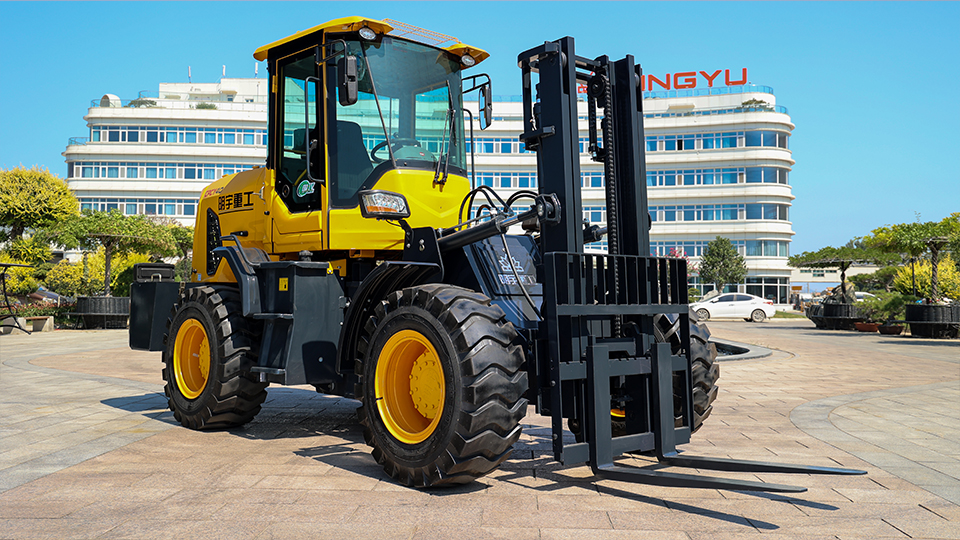
The Inescapable Mandate: Why Certification is Non-Negotiable for Forklift Operators
In the high-stakes environment of warehouses, construction sites, and distribution centers, the question of whether a person must be certified to operate a forklift is not a matter of choice—it is a legal and safety imperative. The answer, unequivocally, is yes. Operating a forklift, or any powered industrial truck, without proper training and certification is a direct violation of federal law and an invitation to catastrophic accidents. This comprehensive article will explore the legal framework, the essential components of a robust certification program, the dire consequences of non-compliance, and the critical role of certification in fostering a culture of safety.
The Legal Backbone: OSHA and the Powered Industrial Truck Standard
At the heart of forklift certification in the United States is the Occupational Safety and Health Administration (OSHA). Under its standard, 29 CFR 1910.178, OSHA mandates that every employer must ensure that all powered industrial truck operators are competent to operate the equipment safely. This competency can only be demonstrated through the successful completion of a comprehensive training and evaluation program.
OSHA’s regulations are not a mere suggestion; they are legally enforceable standards. The core principle is that the employer, not the employee, is responsible for providing the training and certifying that the employee has been properly trained and evaluated. This places a significant burden of responsibility on businesses to implement a rigorous and compliant program.
The standard defines "powered industrial truck" broadly, encompassing not just traditional forklifts but also motorized hand trucks, pallet jacks, and other specialized lifting equipment. This means that the certification requirement extends far beyond what many people might consider a "forklift."

The Anatomy of a Compliant Forklift Certification Program
A compliant forklift certification program is not a single event; it is a multi-faceted process designed to impart both theoretical knowledge and practical skill. OSHA outlines three key components that must be included:
Formal Instruction: This is the classroom or online portion of the training. It covers the foundational knowledge necessary for safe operation. Topics include:
The principles of forklift operation: Understanding the "stability triangle," center of gravity, and how a load affects a forklift's balance.
Vehicle-specific information: A detailed look at the controls, instrumentation, and operational limitations of the specific type of forklift the operator will be using.
Safety regulations: A thorough review of OSHA standards and other relevant safety protocols.
Pre-operation inspections: The importance and procedure for daily vehicle inspections to identify potential hazards.
Load handling: Proper techniques for picking up, transporting, stacking, and unstacking different types of loads.
Fueling and battery maintenance: Safe procedures for refueling gasoline or LP-powered forklifts and charging/recharging electric models.
Practical Training: This is the hands-on component where the trainee applies the knowledge gained in formal instruction. It involves practical exercises under the direct supervision of a qualified person. This portion of the training is crucial and cannot be substituted with online learning alone. The trainee must demonstrate proficiency in:
Maneuvering in a confined space.
Navigating different surfaces, ramps, and grades.
Properly lifting and placing a variety of loads.
Handling different types of attachments.
Operating in the specific workplace environment, including awareness of pedestrian traffic, narrow aisles, and blind spots.
Evaluation of Operator Performance: This final step is a critical assessment where a qualified trainer evaluates the trainee's ability to safely and competently operate the forklift in the actual workplace. This evaluation must be conducted in-person and must confirm that the operator can apply all of the learned skills to the unique hazards of their specific job site.
Upon successful completion of all three components, the employer must formally certify that the operator has met the requirements. This certification record must include the operator’s name, the date of the training and evaluation, and the name of the person who conducted the training.
The Catastrophic Consequences of Non-Compliance
The strictness of the certification requirement is driven by the severe risks associated with forklift operation. Forklifts are powerful machines that can cause serious injury, death, and significant property damage when operated by untrained personnel. OSHA estimates that up to 70% of all forklift accidents are preventable through proper training.
Operating a forklift without certification, or allowing an uncertified employee to do so, can lead to severe legal and financial repercussions. These include:
Significant OSHA Fines: OSHA imposes substantial penalties for non-compliance. Fines for "serious" violations can be thousands of dollars per violation, while "willful" or "repeated" violations can reach well over a hundred thousand dollars. A common violation is the "failure to provide adequate operator certification," which can result in hefty fines for each uncertified operator.
Increased Accident Risk: Without proper training, an operator may not understand critical concepts like load stability, rear-wheel steering, or the dangers of operating on uneven surfaces. This ignorance drastically increases the likelihood of tip-overs, collisions with pedestrians, and crushing incidents.
Liability and Litigation: In the event of an accident involving an uncertified operator, the employer could be held liable for injuries, wrongful death, and property damage. The lack of proper certification is a clear sign of negligence and can lead to expensive lawsuits and judgments.

Insurance Complications: Many insurance providers will not cover damages or injuries caused by an uncertified operator, leaving the employer to bear the full financial burden of an accident.
Certification vs. a Driver's License: The Crucial Difference
A common misconception is that a standard driver's license is sufficient for operating a forklift. This is false. A driver's license is for operating a vehicle on public roads, while a forklift certification is for operating specialized equipment in a controlled, private environment. The skills are not transferable. Forklifts have a unique center of gravity, they steer from the rear, and they have different braking and maneuvering characteristics. A person can have a pristine driving record and still be a danger behind the wheel of a forklift without the specific training required.
The Ongoing Nature of Certification: Refresher Training
Certification is not a one-time event. OSHA requires that an operator's performance be evaluated at least once every three years. Refresher training is also required under the following circumstances:
Unsafe Operation: If an operator is observed operating the forklift in an unsafe manner.
Accident or Near-Miss: If the operator is involved in an accident or a near-miss incident.
Workplace or Vehicle Changes: If the operator is assigned to a different type of forklift or if there are changes in the working conditions that could affect safe operation.
Evaluation Reveals Deficiencies: If an evaluation shows that the operator is not operating the truck safely.
This continuous training ensures that operators remain competent and up-to-date on safety procedures, preventing complacency and adapting to new equipment or work environments.
The Business Case for Certification
While certification is a legal requirement, it is also a sound business practice. A well-trained and certified workforce is a safer and more productive workforce. Proper training leads to:
Reduced Accidents and Injuries: This not only saves lives but also lowers workers' compensation claims, medical costs, and lost productivity.
Increased Efficiency: Trained operators are more efficient at handling loads and navigating the workplace, leading to faster turnaround times and improved workflow.
Lower Maintenance Costs: Operators who are trained on proper pre-operation inspections and safe operating practices are less likely to cause damage to the equipment, reducing repair and maintenance expenses.
Enhanced Employee Morale: When employees feel that their safety is a top priority, it fosters trust and a more positive work environment.
Conclusion
The question of whether one needs to be certified to operate a forklift is not up for debate. Federal law, as enforced by OSHA, makes it a legal obligation for every employer to ensure that all powered industrial truck operators are properly trained and evaluated. This certification is a critical safeguard against the inherent dangers of forklift operation. It is a vital process that provides operators with the specific knowledge and skills needed to do their job safely, protects businesses from crippling fines and lawsuits, and ultimately saves lives. In the world of logistics and material handling, certification is not an option; it is the cornerstone of a safe and compliant workplace.
Name: selena
Mobile:+86-13176910558
Tel:+86-0535-2090977
Whatsapp:8613181602336
Email:vip@mingyuforklift.com
Add:Xiaqiu Town, Laizhou, Yantai City, Shandong Province, China